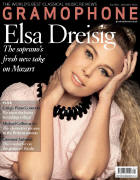Texte paru dans: / Appeared in: |
|
|
Outil de traduction |
|
|
Reviewer: Alexandra Coghlan This is an unabashedly specialist release. The group’s USP is research-driven performance, and the combination here of newly reconstructed and recorded editions (many created by the group’s expert advisor Magnus Williamson) and scholarly booklet notes (also by Williamson) is unlikely to appeal to the casual or ambient polyphony listener. But what riches for those already inclined to luxuriate in the heavy cloth and densely woven sonic thread of Robert Fayrfax’s choral music. Up until now, Eton Choirbook collections and a toe-dip from The Sixteen aside, The Cardinall’s Musick were pretty much the only game in town, with their multi-volume set. Ensemble Pro Victoria share something of that group’s broad, bass-rooted balance and forthright delivery. But there’s a new level of muscularity here, helped by a more soloistic singing approach and more forward recording technique. Upper voices set the tone, painting in the bold colour-saturated strokes of the Gothic manuscripts of this period – there’s nothing wan or reedy here among sopranos and tenors whose voices are allowed to spin with easy warmth and vibrato. And when basses are let off the leash, as in the opening Magnificat Regale, the effect is earengulfing and dynamic – a flood of sound. Bringing together both Fayrfax’s secular part-songs and sacred works, the album also includes a couple of notable premiere recordings. Chief among these is the Credo from the Missa Sponsus amat sponsum, in a new reconstruction by Roger Bray and Williamson. Judging by this movement, the composer’s only surviving four-part Mass is an extraordinary thing – ear-twistingly intricate, even by the composer’s own contrapuntal standards. The melismas unfold in endless skeins, melodic hairpin turns sending the music suddenly flying in a new direction, Fayrfax’s ‘sly rhythmic displacement’ adding further spice. There’s further novelty in Ave lumen gratiae, with its agile duet verse sections, as well as the chant-harmonisations of the alternate verses in the Magnificat – decadent homophonic richness after the passages of darting counterpoint. The secular songs are nicely handled, and the closing Maria plena virtute supplies a welcome aural cool-down with its longer, smoother melodic arcs. It’s a compelling start from a new group I think we’ll be hearing a lot more from. |
|




